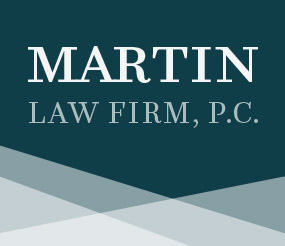This is part two of a two-part post describing the advantages of utilizing a Pennsylvania debt collection lawyer over a collection agency. Collection agencies are substantially limited by their inability to proceed with legal remedies and often fail to take appropriate measures to protect the creditor’s rights. Previously, I described the legal process of debt collection in PA, filing a debt collection lawsuit, settlement, and obtaining a judgment. Part two will outline enforcement of judgments, legal remedies and tools available to a PA debt collection lawyer once a judgment has been obtained against the debtor.
Enforcement of Judgments in PA
Once a judgment has been obtained against a debtor, the next step in the Pennsylvania debt collection legal process is to proceed with enforcement of the PA judgment. An experienced PA debt collection lawyer will begin the enforcement of judgment process by having the Prothonotary issue a Writ of Execution for either levy of real or tangible personal property, or for attachment proceedings against the debtor’s intangible personal property.
A levy consists of a Sheriff’s seizure of a judgment debtor’s property. Attachment means that a creditor may attach any person who is deemed to have possession of the debtor’s property to the lawsuit. For example, if the PA debtor has a bank account, a collections lawyer may attach the bank to the legal proceeding as a garnishee. A collections lawyer will have the Writ of Execution served upon the garnishee, and this will legally command that the garnishee bank freeze the account of the judgment debtor. Once the debtor’s bank account is frozen, a PA collections lawyer can file written Interrogatories and have them served upon the bank. The bank must then disclose whether it is holding any accounts for the debtor and how much money is in each account. Pennsylvania law dictates that the creditor can ultimately seize the money in the bank account for partial or full satisfaction of the judgment.
Locating a Debtor’s Assets in PA
In Pennsylvania, a plaintiff creditor can proceed with “discovery in aid of execution.” Discovery in aid of execution allows a PA collections lawyer to subpoena and depose any person to discover assets of the debtor. A debt collections lawyer can also issue written interrogatories and requests for the production of documents to be served on the defendant debtor. Additionally, there are many other resources available through public records searches to locate assets of a judgment debtor in PA.
Contact a PA Collections Lawyer
With all of the legal remedies available, a skilled and experienced PA collections lawyer can significantly increase the likelihood of a creditor collecting a debt. Statistically, if you haven’t received payment after 90 days, a debtor is highly unlikely to pay you willingly. The sooner you can retain a PA debt collection lawyer to represent you, the more likely you are to successfully recover the money owed to you.
The Martin Law Firm, located in Blue Bell, Montgomery County, PA, has over 10 years of experience representing businesses and individuals for Pennsylvania debt collection matters. We have helped collect hundreds of thousands of dollars on behalf of our clients. Our PA debt collection lawyer offers contingency rates, hourly rates, and combination rates for debt recovery. Contact an experienced PA debt collection lawyer at The Martin Law Firm at 215-646-3980 to schedule a free consultation.
Follow us on Facebook or subscribe to our blog by email to receive exclusive updates and legal tips from The Martin Law Firm. We’ll show you the secrets of commercial debt collection professionals so that your business can get paid quickly and easily.
